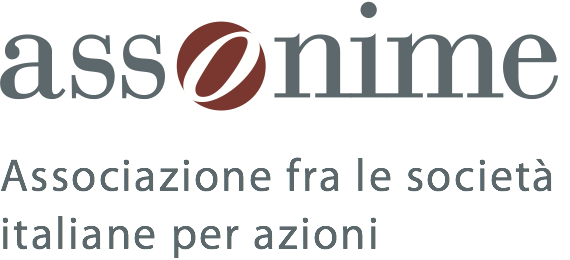Research
SECOND PHASE OF THE RESEARCH
The CEPR/ Assonime Programme on Restarting European Long-Term Investment Finance (RELTIF) is entering its second phase. In January of this year the programme produced its first report (a Green Paper) on European corporate finance.
This identified a number of areas of research it was intended should be pursued in the second phase. Following a meeting of academic researchers in Oxford in March, a call for proposals for research projects relevant to the research programme was put out and in response a large number of proposals were received.
From this the following were selected for inclusion in the second phase research, which will run from August 2015 until July 2016.
|
|
PI Full Name |
Title of Research |
Co-Investigators (Surname) |
|
1 |
Banal-Estanol Albert |
Asset Encumbrance and Bank Funding Costs |
Benito |
|
2 |
Bruno Brunella |
Are Risk Based Capital Requirements Detrimental to Corporate Lending? Evidence from Europe |
Nocera, Resti
|
|
3 |
Coricelli Fabrizio |
Inter-Enterprise Credit, Firm Size and Adjustment during Financial Crisis: Evidence from Europe |
Frigerio |
|
4 |
Eisert Tim |
Whatever it takes: The Real Effects of Unconventional Monetary Policy |
Acharya, Eufinger, Hirsch
|
|
5 |
Freixas Xavier |
Financial Markets Imperfections and Government Support to Credit to SMEs |
Eslava |
|
6 |
Hellmann Thomas |
From Start-up to Scale-up: Examining Public Policies for the Financing of High-Growth Ventures |
Durufle, Wilson |
|
7 |
Ioannidou Vasso |
On the Impact of Government Credit Guarantees Programs on Firms’ Access to Credit and Performance during the Financial Crisis Co-Investigators |
Liberti, Mosk |
|
8 |
Nowak Eric |
Financing of SMEs in Light of Crisis and New Regulation – Do Innovations in Market Financing have an impact on the Cost of Capital? |
Eisele |
|
9 |
Ongena Steven |
Does the cost of Capital affect Bank Lending? |
Célérier, Kick |
|
10 |
Pagano Marco |
Banks Sovereign Exposures, Risk and Lending in the Euro Debt Crisis |
Altavilla, Simonelli |
|
11 |
Polo Andrea |
Trading and Lending in Banks: The Impact of Monetary Policy |
Peydro, Sette |
|
12 |
Popov Alexander |
Misallocation of Investment in Europe: Debt Overhang, Credit Market Distress, or Weak Demand? |
Barbiero, Brutscher, Kolev, Wolski |
|
13 |
Rossolini Monica |
SMEs Access to Market Based Finance: How Euro Area Countries differ? |
Bongini, Ferrando, Rossi |
|
14 |
Schmukler Sergio |
How Long Do Corporate Borrow? Evidence from Capital Raising Activity |
Cortina, Didier |
In addition, a core research project examining the response of European bank lending and corporate financing to the financial and sovereign loan crises is being undertaken. Results from all the research projects will be presented at workshops in January and July 2016. Papers from the project will subsequently be published in academic journals and a final report (White Paper) will synthesise the main conclusions of the research programme.
THE RESEARCH
The last few years have been a period of intense analysis and questioning about the European financial system and the role played since the financial crisis in financing European companies.
Assonime and Cepr are jointly developing a programme of research examining corporate financing in Europe. The main hypothesis behind this research is that the current difficulties are not only a consequence of the financial crisis which will disappear as soon as the banks and the economy will recover, but result from structural problems involving the companies, the banks and the financial structure as a whole.
The research programme is structured in two phases.: the first consists on the releasing of a Green Paper which aims at identifying policy issues that are the forefront of current debates and at raising a list of research questions that we believe is important to address. The second phase is then to commission research on the issues identified in the first stage and to produce a final policy report (a “White Paper”) based on the accumulated evidence.
A workshop on Corporate Financing and European Investment Financing will take place on 27th of March 2015 in Oxford to discuss academic papers.
Research Questions
SMEs
- How much do SMEs contribute to different European economies and sectors?
- What are the primary sources of finance of SMEs?
- Do some SMEs have access to market sources and, if so, in what form?
- Are SMEs net recipients or providers of trade credit and does this vary across sectors and economies?
- Has the financing of SMEs become more acute since the financial crisis?
- Do we need new forms of contracts (with different risk sharing) for the corporate sector in general and SMEs in particular?
- Has the maturity of finance available to SMEs shortened or lengthened?
- Is there evidence that the governance of SMEs contribute to their financing problems?
Long versus short term, bond versus bank, and debt versus equity finance
- How significant a shift has there been between long and short-term finance?
- Is the provision of long-term finance particularly associated with some types of companies?
- Is it associated with both bank and bond finance?
- To what extent does the shift between bank and bond finance differ across countries, companies and sectors?
- Has there been a shift between debt and equity finance?
- Is the change restricted to certain types of companies?
- Are the changes cyclical or structural in nature?
- What are the changes in the terms of available forms of finance?
Demand versus supply
- What evidence is there of supply shortages versus insufficient demand for funds?
- Does this vary across different types of firms, sectors and countries?
- Is collateral a major determinant of the provision of finance and if so how does this affect the financing of different types of companies?
- Does the significance of demand and supply factors vary over time?
- How influential is monetary policy by the ECB and central banks on the provision of corporate finance?
- Do companies respond to the greater availability of finance during periods of relaxed monetary policy and quantitative easing?
Intermediation, regulation and information
- Do banks play a particularly important role in the financing of European companies?
- Does this vary across countries?
- Has the European banking sector been subject to particularly deficiencies since the financial crisis?
- Has this had a detrimental impact on the financing of particular companies and projects?
- What are the long-term prospects for the profitability of traditional intermediation business?
- Has regulation corrected or exacerbated the deficiencies of bank lending in Europe?
- Is regulation encouraging the development of shadow banking markets?
- Do innovations in financing offer the prospect of providing new forms of market finance for SMEs in Europe?
- Are there ways in which information deficiencies in financial markets can be alleviated?
- Do these require public sector initiatives or can the private sector address information deficiencies?
Corporate governance
- To what extent has corporate governance in the corporate sector contributed to problems of funding investment?
- Are the problems associated with management, conflicts between different types of shareholders or excessive short-termism or long-termism in equity markets?
- Are corporate governance problems particularly acute in small or large companies?
- Are the deficiencies in corporate governance more acute in financial institutions?
- Are policies to improve corporate alleviating or exacerbating problems?
- Are the governance problems associated with regulatory institutions?



